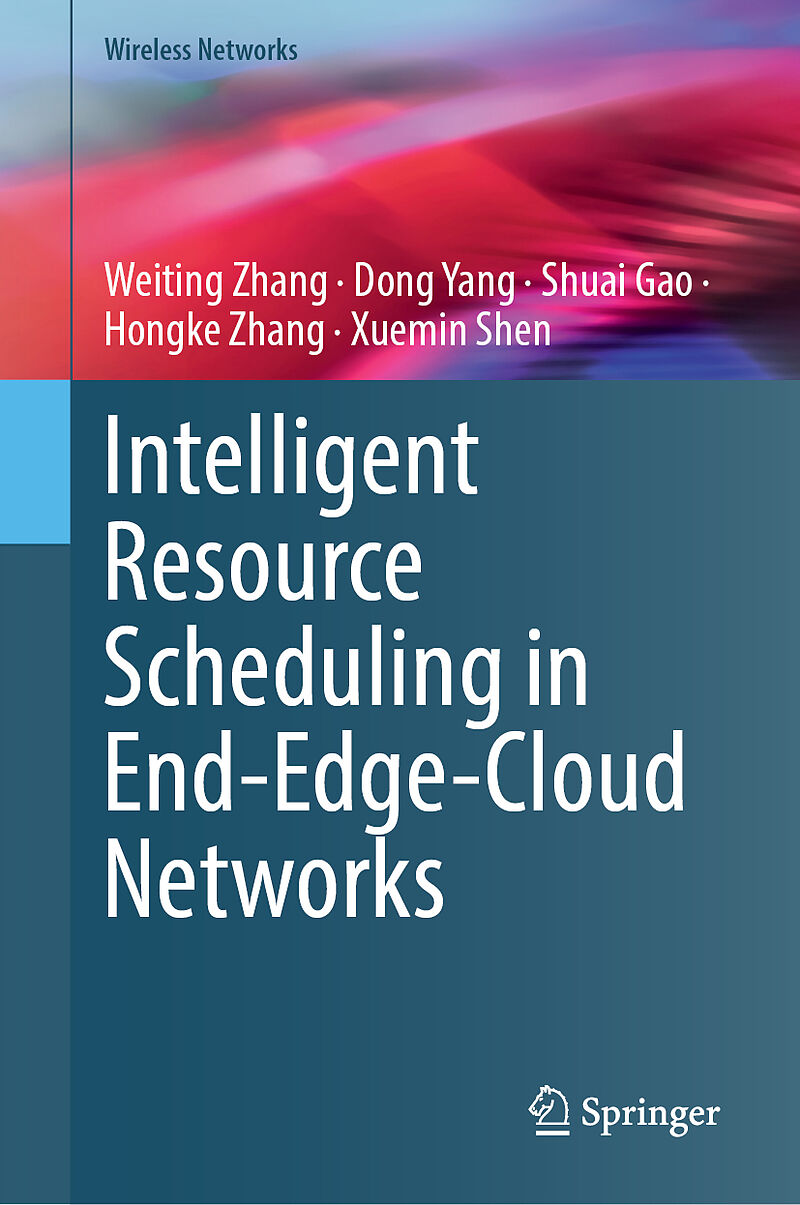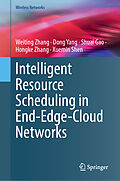

Intelligent Resource Scheduling in End-Edge-Cloud Networks
Beschreibung
This book investigates technologies that enable more powerful resources and improve resource utilization for end-edge-cloud networks. The authors cover tools such as federated learning (FL) and real-time inference in industrial IoT and they present a novel co...Format auswählen
- Fester EinbandCHF 196.15
Wird oft zusammen gekauft
Andere Kunden kauften auch
Beschreibung
This book investigates technologies that enable more powerful resources and improve resource utilization for end-edge-cloud networks. The authors cover tools such as federated learning (FL) and real-time inference in industrial IoT and they present a novel communication and computation integration architecture for end-edge-cloud networks. Under the considered end-edge-cloud network architecture, the authors then propose different resource scheduling schemes based on centralized and distributed deep reinforcement learning methods to improve overall resource utilization for guaranteeing the diversified quality of service (QoS) requirements from different applications. The proposed architecture and schemes can not only be adopted in future end-edge-cloud networks to efficiently manage the multi-dimensional resources in real time, but also provide useful guidelines for multi-dimensional resource scheduling scheme designing and resource utilization enhancement in complex end-edge-cloud networks with diversified data services and applications.
Autorentext
Professor Zhang Weiting earned the Ph.D. degree in Communication and Information Systems with the Beijing Jiaotong University, Beijing, China, in 2021. From Nov. 2019 to Nov. 2020, he was a visiting Ph.D student with the Department of Electrical and Computer Engineering, University of Waterloo, Canada. Starting from Dec. 2021, he works as an associate professor with the School of Electronic and Information Engineering, Beijing Jiaotong University. His research interests include industrial Internet of Things, deterministic network, smart computing integration network, and machine learning for network optimization. In the related areas, he has published over 60 journal and conference papers and over 20 granted patents. He is serving as an associate editor for Wireless Networks; and a Guest Editor of several international journals, such as Electronics and Sensors. He also served as TPC co-chair, workshop chair, session chair, publicity co-chair, and TPC members for many international conferences, including IEEE Globecom 2023, IEEE INFOCOM 2022, IEEE ICC 2022, IEEE ICDCS 2022, IEEE iThings 2023, BIGCOM 2022, and IEEE HPCC 2021 conferences. He received 5 Best Paper Awards from IEEE ICC in 2024, IEEE INFOCOM WSH in 2024, ACM SIGCOMM China in 2023, IEEE ICCSN in 2023, and NaNA in 2023, respectively, and one Outstanding Paper Award from IEEE EUC in 2022.
Professor Yang Dong received the Ph.D. in the School of Electronics and Information Engineering from Beijing Jiaotong University, China, in 2008. From 2009 to 2010, he collaborated with ABB Corporate Research on industrial wireless networks when he worked as a post doctor in Jönköping University, Sweden. He is currently a full professor and the director of Intelligent Industry Network Research Institute at Beijing Jiaotong University, and a part-time researcher at Pengcheng National Laboratory. His current research interests focus on network architecture, Industrial Internet of Things and AI-driven network resource management. He holds more than 30 granted invention patents including two US Patents. He has authored or co-authored over 60 scientific publications in the field of network and communication technology. He was the recipient of several awards, including 2014 National Technology Invention Awards of China, 2017 National Technology Invention Awards of China, 2019 National High-level Talents Special Support Plan of China, China Patent Excellence Award, etc. He has served as the Guest editor for IEEE Transaction on Industrial Informatics, and has been serving as the IEEE Transaction on Mobile Computing and Executive Editor for Transactions on Emerging Telecommunications Technologies (Wiley).
Professor Zhang Hongke (Fellow, IEEE) received the M.S. and Ph.D. degrees in Electrical and Communication Systems from the University of Electronic Science and Technology of China, Chengdu, China, in 1988 and 1992, respectively. From 1992 to 1994, he was a Postdoctoral Researcher with Beijing Jiaotong University, Beijing, China, where he is currently a Professor with the School of Electronic and Information Engineering and the Director of the National Engineering Lab on Next Generation Internet Technologies. His research has resulted in many papers, books, patents, systems, and equipment in the areas of communications and computer networks. He is the author of more than ten books and the holder of more than 70 patents. Dr. Zhang is the Chief Scientist of the National Basic Research Program of China (973 Program) and has also served on the editorial boards of several international journals.
Professor Shen Xuemin (Fellow, IEEE) received the Ph.D. degree in Electrical Engineering from Rutgers University, New Brunswick, NJ, USA, in 1990. He is currently a University Professor with the Department of Electrical and Computer Engineering, University of Waterloo, Canada. His research focuses on network resource management, wireless network security, Internet of Things
Inhalt
Introduction.- Overview of End-Edge-Cloud Networks.- Communication and Computation Integration Network Architecture.- Multi-Dimensional Resource Adaption for Hierarchical Federated Learning.- Deterministic Transmission Scheduling for Time-Sensitive Federated Learning.- End-Edge-Cloud Orchestration for Collaborative DNN Inference.- Discussion of Future Directions.- Conclusion.
